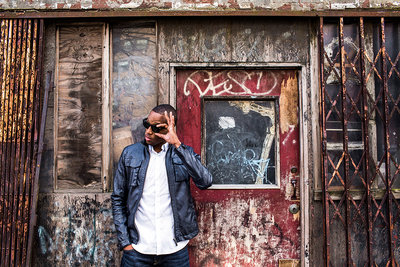
New Orleans can justly claim to be one of the birthplaces of American music, with its legendary gumbo of Caribbean, African and European music influences providing the essential ingredients for the rhythms that spread from the Gulf of Mexico and conquered the music world.
But it takes nothing away from Louis Armstrong, Sidney Bechet, Jelly Roll Morton, Fats Domino, Professor Longhair and other Crescent City legends to admit that for many years, the Big Easy seemed to coast on its reputation, its major venues amounting to a historical theme park exhibiting the music that made it great. The exodus of musicians (including Portland jazzer Devin Phillips) that followed Hurricane Katrina didn’t help.
Forward-looking music always bubbled beneath the touristy facade, however, and we’re lucky enough to experience some of the recent wave of New New Orleans this month in appearances by the funk masters Galactic (appearing Aug. 16 at Portland’s Oregon Zoo and Aug. 19 at Jacksonville’s Britt Festival) and Trombone Shorty & Orleans Avenue Aug. 15 at The Shedd.
Tremé native Trombone Shorty (aka Troy Andrews) was leading a band at age 6 and got his first national spotlight in a documentary tribute to Louis Armstrong. And he refused to be trapped by his hometown’s storied past or by the genres it spawned. After playing as a teen with stars from Wynton Marsalis to Lenny Kravitz, Andrews bopped his horn and sang with everyone from Eric Clapton to CeeLo Green to Dr. John, and later garnered national attention for his acting in the HBO series Treme.
A virtuoso who doesn’t rest on his chops, Andrews takes the trombone to places no other musician (with the possible exception of jazz legends like J.J. Johnson) could have imagined, creatively turning the quintessential backing-band instrument into a true lead axe with broad popular appeal (he’s been known to whip out his trumpet on occasion). His double sax and guitar-fueled band, Orleans Avenue, mixes rootsy R&B, funk, hip hop, rock and jazz elements with all the cheerful disdain for genre his hometown has displayed for centuries.
Andrews’ 2013 album, Say That To Say This, samples from the spectrum, and while his tight, muscular funk jazz still trumps his more diffuse R&B and soul vocals (which do provide a welcome change of pace in concert), his stage presence guarantees a high-energy New Orleans party, even in that old church on Broadway.